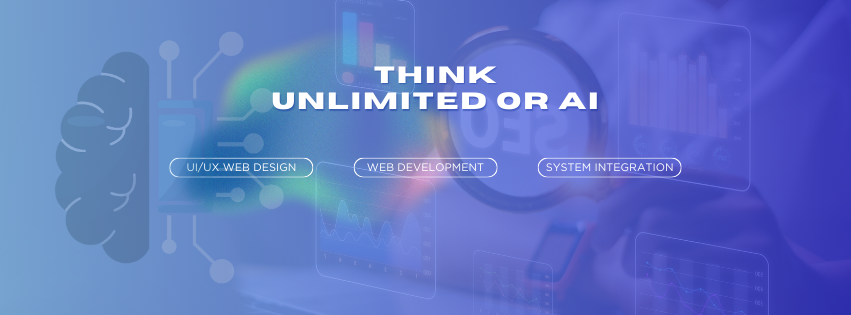
Question: How AI impact web development and make challenges to developers?
Exploring the Intersection of Web Development and Artificial Intelligence
In the digital age, the fields of web development and artificial intelligence (AI) have emerged as two powerhouses driving innovation and shaping the future of technology. While traditionally seen as separate domains, the convergence of these two disciplines holds tremendous potential for revolutionizing how we build and interact with websites and web applications.
The Rise of AI in Web Development
Artificial intelligence, once confined to the realm of science fiction, has become increasingly integrated into our everyday lives. From virtual assistants like Siri and Alexa to recommendation systems on e-commerce platforms, AI-powered technologies are reshaping the way we interact with digital content.
In the context of web development, AI is being leveraged to enhance various aspects of the user experience, streamline development processes, and enable advanced functionalities. Here are some key areas where AI is making waves in web development:
1. Personalization and User Experience Enhancement: AI algorithms analyze user behavior and preferences to deliver personalized content and recommendations. This level of customization not only improves user engagement but also increases conversion rates by presenting relevant offerings to individual users.
2. Chatbots and Virtual Assistants: Chatbots powered by AI are becoming ubiquitous on websites, providing instant assistance to users and automating customer support tasks. These intelligent virtual assistants can answer queries, provide product recommendations, and even facilitate transactions, enhancing the overall user experience.
3. Natural Language Processing (NLP): NLP enables websites to understand and respond to human language, opening up new possibilities for conversational interfaces and voice-enabled interactions. Voice search and voice-activated commands are becoming increasingly prevalent, thanks to advancements in NLP technology.
4. Content Generation and Curation: AI algorithms are capable of generating content, such as news articles and product descriptions, based on predefined parameters and data inputs. Additionally, AI-driven content curation tools help website owners curate relevant and engaging content from across the web, saving time and effort.
5. Predictive Analytics and Insights: AI-powered predictive analytics tools analyze vast amounts of data to uncover valuable insights and trends. Web developers can leverage these insights to optimize website performance, improve user engagement, and make data-driven decisions.
Integrating AI into Web Development Workflow
Incorporating AI into the web development workflow requires a combination of technical expertise, creativity, and strategic thinking. Here are some practical steps for integrating AI into your web development projects:
1. Identify Use Cases: Start by identifying use cases where AI can add value to your website or web application. Whether it’s improving user engagement, optimizing content delivery, or automating repetitive tasks, understanding the specific problems you want to solve will guide your AI implementation strategy.
2. Choose the Right Tools and Technologies: There is a wide range of AI tools and frameworks available for web developers, ranging from pre-trained models and APIs to custom-built solutions. Evaluate your options carefully and choose the tools and technologies that best align with your project requirements and objectives.
3. Data Collection and Preparation: AI models rely on high-quality data for training and inference. Collect relevant data from various sources, preprocess it to remove noise and inconsistencies, and prepare it for use in your AI algorithms.
4. Model Development and Training: Develop AI models tailored to your specific use case, using techniques such as machine learning, deep learning, and reinforcement learning. Train your models on labeled datasets to improve their accuracy and performance over time.
5. Integration and Deployment: Integrate your AI models into your website or web application, ensuring seamless interaction with other components and functionalities. Test your AI-powered features rigorously to identify and address any issues before deployment.
6. Monitor and Iterate: Continuously monitor the performance of your AI-powered features, gather feedback from users, and iterate based on insights and observations. AI is a rapidly evolving field, and staying abreast of the latest developments is essential for maximizing its potential.
Challenges and Considerations
While AI offers immense opportunities for innovation in web development, it also presents certain challenges and considerations that developers need to address:
1. Ethical and Privacy Concerns: AI algorithms raise ethical questions related to data privacy, bias, and transparency. Developers must ensure that AI-powered systems are used responsibly and ethically, respecting user privacy and mitigating potential biases.
2. Technical Complexity: Implementing AI in web development requires a solid understanding of AI principles, algorithms, and techniques. Developers may need to acquire new skills or collaborate with AI specialists to successfully integrate AI into their projects.
3. Performance and Scalability: AI algorithms can be computationally intensive, impacting website performance and scalability. Developers need to optimize their AI-powered features to ensure efficient resource utilization and seamless scalability as traffic grows.
Conclusion
The intersection of web development and artificial intelligence represents a frontier of innovation and creativity, where developers have the opportunity to leverage AI to create more intelligent, personalized, and engaging web experiences. By embracing AI technologies and integrating them thoughtfully into their workflows, developers can unlock new possibilities and stay ahead in an increasingly competitive digital landscape.
As AI continues to evolve and mature, its impact on web development will only grow, reshaping the way we design, build, and interact with websites and web applications. By staying curious, adaptable, and open to experimentation, developers can harness the power of AI to create the next generation of groundbreaking web experiences.
